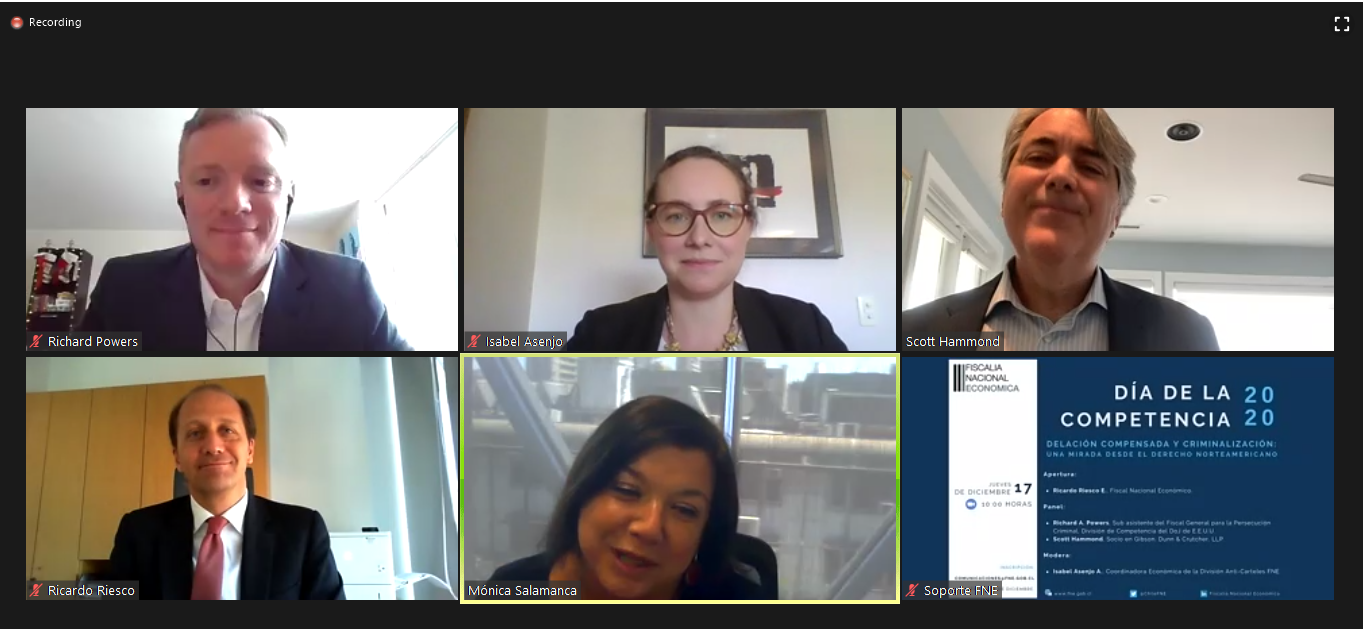¿qué estás buscando?

FNE held the XVII Competition Day

Today the National Economic Prosecutor’s Office held version number XVII of its Competition Day seminar, whose central theme was “Leniency and Criminalization: Lessons from U.S. Law.”
The meeting began with the remarks of the National Economic Prosecutor, Ricardo Riesco, followed by a panel with the participation of US experts Richard A. Powers, Deputy Attorney General for Criminal Prosecution of the Antitrust Division of the U.S. Department of Justice and Scott Hammond, Partner at Gibson, Dunn & Crutcher, LLP and former Deputy Assistant Attorney General for Criminal Enforcement of the Antitrust Division of the U.S. Department of Justice.
In his opening speech, the National Economic Prosecutor analyzed the challenges that the recent criminalization of collusion will pose for the leniency program, one of the main mechanisms for detecting cartels worldwide. In this sense, he called on companies and the lawyers who advise them to seriously consider the sanctions to which they are exposed if they do not turn themselves in, which since 2016 may include prison sentences.
Likewise, he called on companies that seek to apply to the leniency program to collaborate with the authority in a transparent and complete manner. Lastly, the Prosecutor pointed out that the FNE is revising its internal procedures, to give certainty to whoever helps the FNE to detect and sanction cartels, in order to assure that they will not be in a worse position than whoever decides not to cooperate with the authority.
The North American Experience
In the panel, gave an overview of the history of leniency in the United States, drawing lessons from it that could be important to a jurisdiction that has recently criminalized collusion.
Among other things, they highlighted that the existence of prison sentences acts as a strong incentive for wrongdoers to turn themselves in and insisted on the importance of developing trust between the authority and those who seek to access the leniency benefit.
Likewise, they showed that it is important to understand that the leniency program aligns the incentives of the authority, companies, and individuals in order for a robust institutional framework in the detection, prosecution and punishment of cartels to exist.
See Remarks of the National Economic Prosecutor.
See Presentation of the National Economic Prosecutor.











